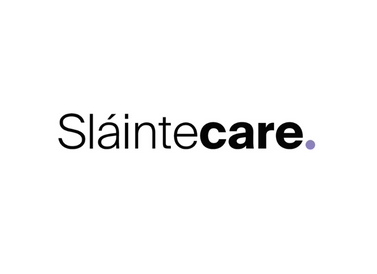
With Sláintecare, Government of Ireland
 Download
Download
 Download
Download
With Sláintecare, Government of Ireland
We have conducted two research studies with Sláintecare, Government of Ireland on our ‘Prime Time of Life’ programme.
Research Study 1
Research title: Prime Time for Middle Aged and Older Adults. A 12 Week Online Multimodal Physical Activity and Health Intervention for Adults Aged 50-80 Years in Laois.
Research paper: This research was published in Physical Activity and Health (September 2021).
Background: Multimodal exercise training can ameliorate the physiological decline associated with ageing. This study aimed to investigate whether 12 weeks of a home-based online multimodal training and health education intervention could improve functional ability and perceptions of physical and mental health in middle-aged and older adults.
Methods: Sixty-one male (N = 18, 59.1 ± 7.0 years) and female (N = 43, 60.9 ± 6.8 years) participants with various clinical conditions completed two 60-minute training sessions per week for 12 weeks delivered online via Zoom. All sessions included aerobic, resistance, balance, and flexibility exercises. One weekly session incorporated 15 minutes of health and fitness education. The pre/post testing sessions were conducted in a local community centre in line with COVID-19 public health guidelines. Paired samples t-tests and the Wilcoxon signed rank tests were utilised to compare scores pre and post intervention.
Results: There were significant improvements in participants 6-minute walk (p < 0.0001), sit-to-stand (p < 0.0001), timed-up-and-go (p < 0.0001), sit-and-reach (p < 0.0001), squat jump (p < 0.0001), core endurance (p < 0.0001), grip strength (right hand p = 0.03, left hand p = 0.04) and balance (right leg p < 0.0001, left leg p = 0.004) tests post intervention. Perceptions of physical (p < 0.0001) and mental (p < 0.0001) health also improved significantly.
Conclusion: Twelve weeks of online multimodal training and health education can significantly improve cardiovascular fitness, strength, power, balance, flexibility, and perceptions of physical health, mental health, and quality of life in middle-aged and older adults. While there are some limitations to online interventions, the benefits are numerous and equal to those reported for onsite interventions and should be considered for wider rollout in this population.
Programme partners: Laois Sports Partnership, Sláintecare, Pobal, Government of Ireland.
Funding acknowledgement: This project received funding from the Government of Ireland Sláintecare Integration Fund under grant agreement number 21.
Research Study 2
Research title: Reflections, Impact and Future Recommendations Following ‘Prime Time of Life’ – an Online 12-week Multimodal Physical Activity and Health Education Programme for Middle Aged and Older Adults in Laois.
Research paper: This research was published in Physical Activity and Health (June 2022).
Background: Multimodal training (MMT) is important for healthy ageing. However, few middle-aged (MAA) and older adults (OA) engage in MMT. This study aimed to (1) explore MAA and OA reflections, impact and future recommendations following ‘Prime Time of Life’ (PTOL) – a 12-week online multimodal physical activity and health education programme; and (2) examine if participants implemented and sustained lifestyle changes during and after the programme.
Methods: A qualitative study was conducted with purposeful sampling to explore the experiences of MAA and OA who completed PTOL. Six semi-structured focus groups and five interviews were conducted using online communication technology, audio-recorded, and transcribed verbatim. Transcripts were analysed using thematic analysis.
Results: Twenty-one male (n = 7,65.9 ± 6.6 years) and female (n = 14,65 ± 7.6 years) participants completed the study. Accessibility, health benefits, suitability, social influence, and accountability were identified as key facilitators. Poor awareness, social influence, accessibility, and poor self-efficacy were perceived as potential barriers. Participants primarily (90.5%, n = 19) made lifestyle changes during the PTOL programme, and 61.9% (n = 13) maintained at least one lifestyle change seven months after completing the programme.
Conclusion: Although lack of social interaction between participants was identified as a barrier, PTOL was a well-accepted method to promote healthy ageing for MAA and OA. Given there was a poor awareness of other MMT programmes and health benefits prior to PTOL there is a need for increased awareness. It is important to MAA and OA that they have convenient access to MMT programmes that are suitable for all fitness and functional abilities and provide technical support.
Programme partners: Laois Sports Partnership, Sláintecare, Pobal, Government of Ireland.